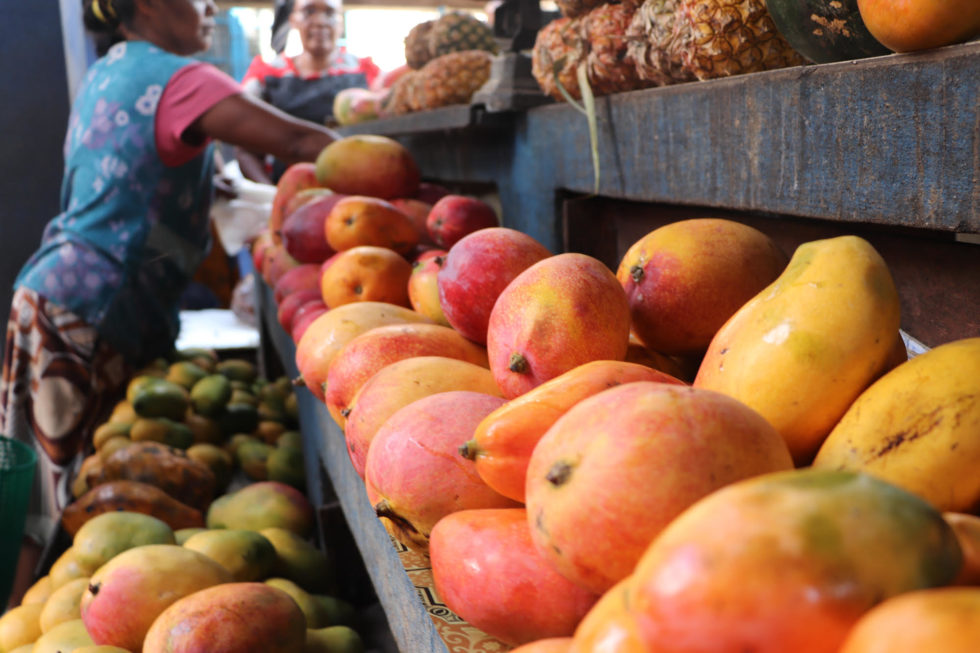29 June 2020
Understanding the complex and dynamic interrelationships between water, energy and food will enable cities to manage resources sustainably.
Lessons from a food systems webinar



Understanding the complex and dynamic interrelationships between water, energy and food will enable cities to manage resources sustainably.” – Sandra Boatemaa, Centre for Complex Systems in Transition (Stellenbosch University).
Systems-thinking means shifting narratives to include experiences that are otherwise overlooked. A circular approach accounts for the complex configurations of cities and is sustainable by its very nature, acknowledging resources and services as interdependent.
The webinar, Systems approaches to food and nutrition security and urban resilience: Lessons from Cape Town and Kumasi, organised by ICLEI Africa in partnership with Stellenbosch University, Kwame Nkrumah University of Science and Technology (KNUST) and supported by the Leading Integrated Research in Africa 2030 (LIRA 2030) Grant was held on 23 June, and facilitated by Scott Drimie (Director, Southern African Food Lab).
As part of the Inclusive Metabolism project, the webinar used experiences from Kumasi and Cape Town as case studies to highlight how systems approaches to service delivery are central to improving food-, water-, and energy security in the context of informality. Existing challenges to the informal food sector such as access to food and limitations to transport and infrastructure have been exacerbated during the Covid-19 pandemic, where further restrictions on movement and retail have led to an unprecedented food crisis – not in terms of shortage, but in terms of access. Cape Town and Kumasi served as city case studies to demonstrate how urban resilience is informed by a dynamic, interrelated food-water-energy nexus. Solutions or responses to variable challenges that affect food safety could be found elsewhere in the nexus.

Sandra Boatemaa (Stellenbosch University), demonstrated how a nexus approach in Cape Town and Kumasi uses the food system (a large informal system) as an entry point in African cities. The project involves a mixed-methods approach drawing from story-telling, surveys, photographic explorations and chemical analyses. As part of this research, more than 300 women in the informal food retail sector were interviewed, while the research project has also enabled conversations with policy makers and municipal chief executives.
These studies are conducted within the Inclusive Metabolism project, supported by LIRA 2030, the Leading Integrated Research in Africa 2030 grant programme. Urban metabolism (resource flow) analysis usually measures resources quantitatively, this often overlooks informal flows, which go undetected, are not measured and therefore excluded from formal planning systems. The Inclusive Metabolism project explores informal metabolisms using qualitative approaches, such as storytelling and photography, as a visual tool to understanding the complex language of food security, which could potentially inform water and energy security perspectives.
The #hiddenflows initiative “uses storytelling and photography to provoke thought and provide different perspectives on food processes in African cities,” explains Jehan Bhikoo (ICLEI Africa), who runs the initiative as part of the Inclusive Metabolism project, and part of the RISE Africa event. Further, it provides a basis for which decision-makers can engage with to elicit discussion around sustainability in cities, and provides a platform for citizen engagement. Hidden Flows has two concurrent phases, an Instagram-based photo competition, and commissioned and well-curated photographic pieces. The initiative is intended to culminate in an online exhibition in November, and an in-person exhibition at RISE Africa 2021.
The initiative highlights how many of the informal sector’s challenges are overlooked by policy makers. Mercy Badu, Senior Lecturer at the Department of Chemistry at the Kwame Nkrumah University of Science and Technology in Kumasi, Ghana, focuses her research on women in the informal food sector. Her studies indicate a clear connection between food safety and infrastructure, specifically the transit time of food which can be attributed to poor access to roads: in Kumasi, traders transport their vegetables by foot or collective public transport, which has a direct impact on the lifespan of a product. Dr Badu believes that linking roads to farming communities, improving storage facilities, and providing vendors with access to education pertaining to food safety, is crucial to building urban resilience.

The City of Cape Town has been working on an urban resilience strategy that has enabled the city to respond to the Covid-19 crisis. According to Tamsin Faragher, representing the City of Cape Town, the great drought of 2017/2018 “tested the resilience of every sector, highlighting the need to ensure future resilience.” Food security was identified as a potential stress in addition to drought, poverty and unemployment. Tamsin Faragher commented that “the resilience strategy means benchmarking Cape Town’s response to the drought and determining resilience against shocks and stresses: the city’s food production is dependent on its water supply system.” The key understanding to this challenge is the intersection of food production and water management. As such, increased food production relies on many spheres of government.
“We have enough food, but our people are hungry,” she concluded, expressing the need for “a circular food system that optimises the water resources within. Such a fit-for-purpose food system can create thriving communities, environment and economies.”
Tamsin Faragher
City of Cape Town
How do we improve access and optimise systems? “Resilience and a systems thinking approach is the most appropriate methodology to manage unpredictability and flexibility,” Tamsin Farragher argues. This is in line with Sandra Boatemaa’s observations that a food-water-energy nexus approach will enable cities to “anticipate potential trade-offs and synergies to design, appraise and prioritise response options that are viable across different sectors.”
Further engagements of the Inclusive Metabolism project are planned for September and November 2020.


